Service animals are working animals that have been trained to help disabled people and alleviate health conditions.
There have been several studies that have shown the health benefits cats have on their owners, helping to calm their mood and, in some cases, reducing the risk of a heart attack or other medical emergencies.
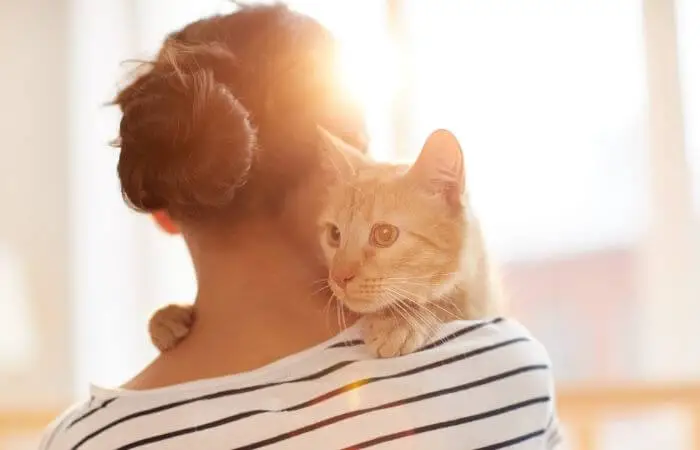
Yet, while dogs are widely recognised as service animals, cats often end up being forgotten about.
Cats do not qualify as service animals nor do they have the same legal rights, they do class as emotional support animals (ESAs) to provide comfort for people with some mental illness and psychological conditions.
In this article, we will look into what ESAs are and why a cat is one of the best emotional support animals you could choose.
Contents
What are Emotional Support Animals?
In the UK, one in four of the population suffers from a mental illness, and emotional support animals count as any animal that helps their owner to battle their mental illness and overcome it by helping to alleviate the negative symptoms.
Although not classed as service animals as they do not need to be trained to offer a specific service, ESAs are still hugely beneficial to people who are dealing with emotional distress.
By mentally ill patients having an animal that they are responsible for caring for, it can provide a purpose in life and give these individuals something to get out of bed and care for each day. Therefore, ESAs are commonly prescribed for people with depression and anxiety.

Cats are among the best animals to offer emotional support to humans; they are calm, soothing, and comforting, while also being independent and not needing as must attention and interaction as dogs.
This does not mean to say they are lacking in personality though, and cats can provide hours of entertainment and act as a companion for people who are feeling lonely.
Aside from emotional support animals, cats can be used as therapy pets.
Therapy cats are similar to emotional support cats in that they positively benefit humans’ health and facilitate their healing through calming and relaxation.
However, they are instead used to comfort a range of people such as those in retirement homes, schools, and other facilities to provide support to many people, rather than having one sole owner that they are prescribed to.
What Makes Cats Great Emotional Support Animals?
There has been clear research showing that emotional support animals successfully help mentally ill people keep their emotions under control.
Cats are among the best contenders to offer emotional support. Here are all the benefits of choosing a cat as an emotional support animal:
1. They Stabilise Intense Negative Emotions
Cats are among the calmest of pets, often lazing around and resting, taking life as it comes, and with no crazy ups or downs.
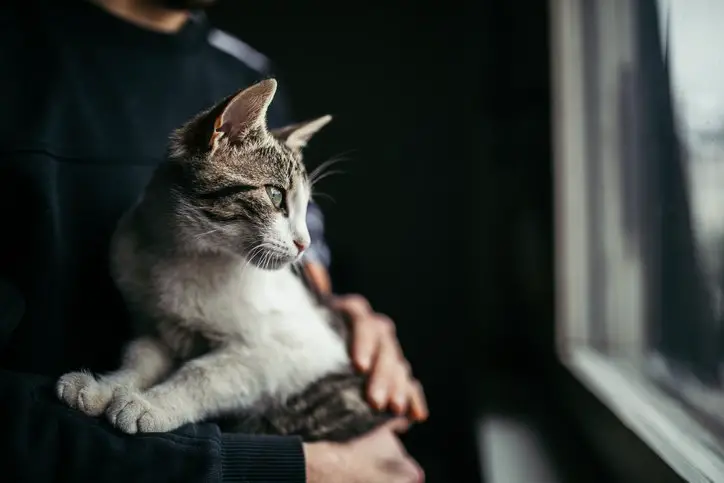
When people are feeling bouts of anxiety, fear, or other intense negative emotions, the cat’s steady state of emotion can help calm their owner and aid them in coming back to a more relaxed mindset, helping them to heal.
Alongside this, cats are also curious creatures with big personalities that can provide a source of enjoyment and entertainment. This successfully allows negative emotions to be replaced with happy ones.
2. They’re Low Maintenance
Cats are a great emotional support option as they provide unconditional love for their owners, without requiring too much attention nor being too needy.
Whereas other animals such as dogs require daily walking and take up a lot of time, cats are inherently independent and so create a good balance between having something to love and care about without requiring too much effort.
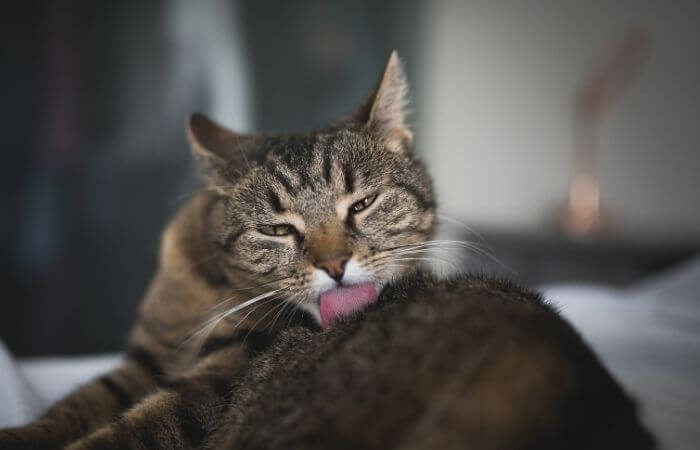
For people struggling with depression and other mental illnesses where they feel lonely and that they are lacking love, cats can offer this support and provide a purpose.
However, if the owner is having a particularly down day, they don’t have to deal with the pressure of knowing they have to take their dog out for a walk and face the world – instead, they can simply curl up, stroke their cat, and reap the benefits.
3. They’re Great Indoor Pets
Cats are also an excellent option as an emotional support animal as they are extremely well-suited to living indoors, especially the more calm and affectionate breeds such as Ragdolls.
This makes cats suitable for a wider range of people, including people without a garden or people in smaller homes.
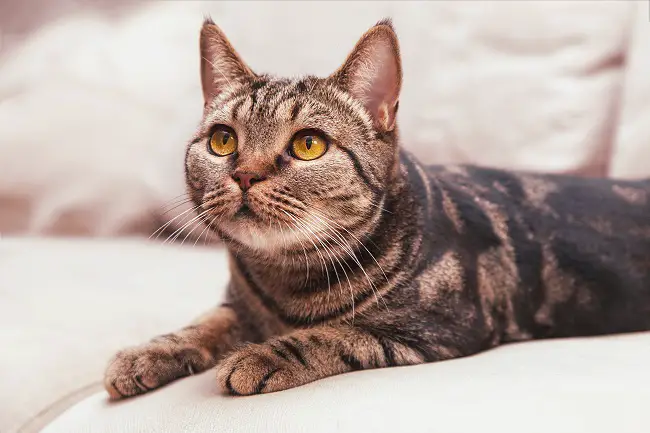
Indoor cats have the added benefit that they are there to provide emotional support whenever you are home, whether that’s when you’re watching television, eating your dinner, or just for a mid-afternoon cuddle.
If you have an indoor ETA, they will be there 100% of the time, besides providing something to look forward to returning home to.
4. They’re Better Suited To Rented Accommodation
Another benefit of having a cat as an emotional support animal is that they are better suited to rented accommodation compared to dogs.
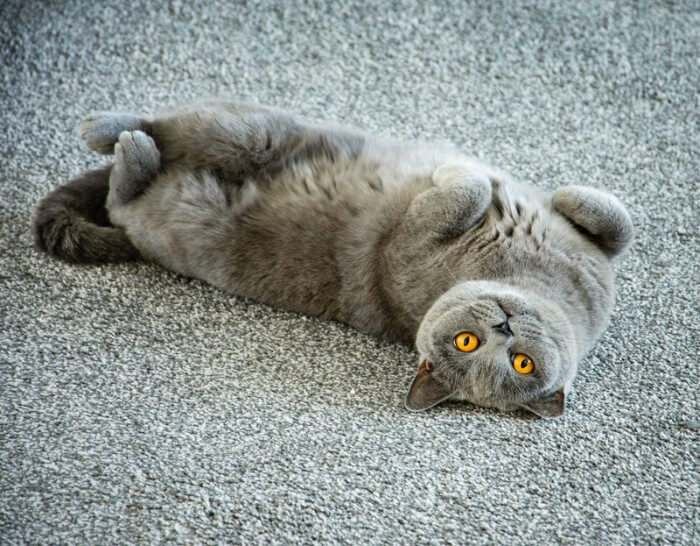
Many people in the UK live in rented accommodation, some landlords are more lenient regarding allowing cats in their property than they are with dogs (though this is not always the case!).
If you are renting a room in shared accommodation, cats are also less likely to become a nuisance to the people you’re renting the property with, as they are quiet, clean, and calm animals compared to many other pets.
5. They’re Easy to Travel With
Cats are easy to travel with compared to regular service animals such as dogs.
Thanks to their size you can easily fit their carrier in the back of your car.
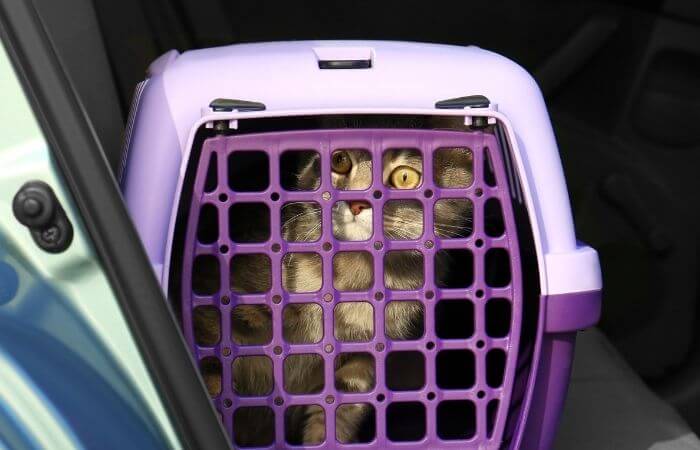
Whereas the same could be said for other small pets such as rabbits or hamsters, cats provide a much greater level of emotional support than these other common pets, and therefore offer the perfect balance between managing mental illness and convenience.
Can All Cats Be Emotional Support Animals?
While your cat may provide you with happiness, comfort, and love, ESAs are different from regular pets and go a step further.
Therefore, emotional support animals are not just any animal but have to be prescribed by a licensed therapist or psychologist to show that they are central to the patient’s mental health and recovery.
However, any cat can become an emotional support animal, given that they have a friendly, patient, and gentle temperament and are comfortable around people. For this reason, some cat breeds are more suited to being a companion for emotional support than others:
- Ragdoll: Being known as one of the most passive and relaxed cat breeds, Ragdolls are one of the best emotional support cats out there.
- American Bobtail: As a more playful and entertaining cat, American Bobtails provide great emotional support for anyone feeling low who needs their mood-lifting. They’re also great with children.
- Manx: This breed of cat is among the most intelligent, and so can form strong bonds with their owner and will always show affection towards them.
- Persian: While Persian’s are slightly higher maintenance due to their long hair, they are great lap cats and ideal for anyone feeling lonely and needing a cuddle.
If the cat is going to be used as a therapy cat, in addition to having a good temperament, they also need to feel at home around a range of different people, enjoy being petted, and forgive the occasional clumsy handling from children.
Plus, they need to be happy with change and moving around from place to place, quickly adapting to new environments, noises, and smells.
Are Emotional Support Cats Legally Recognised?
In the US, emotional support animals should be registered and receive proper documentation so that you can prove ESA cats are there for your wellbeing.
However, the lack of legal recognition in the UK means that very few rights do apply to ESAs, and so registration isn’t required.
That being said, whereas emotional support cats do not have the same legal rights as service animals nor as ESAs in the US, companies and organisations do tend to be more lenient if your cat is an emotional support animal rather than just a pet.

Nevertheless, if you are living in rented accommodation and have a cat to provide emotional support, you will still need to check this with your landlord before moving in and they are under no obligation to say yes, even if the cat has been prescribed by a psychologist.
Additionally, whereas some flights may allow emotional support cats on board, others don’t. This depends both on the airline and the end destination, so speak to the company you’re flying with first.
There is definitely a need for increased awareness of cats for emotional support in the UK so that people struggling with mental illness can receive the full benefits from having a cat as a companion.

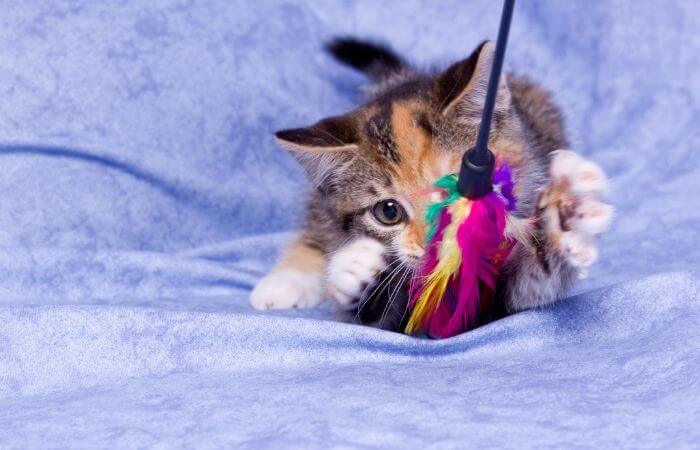
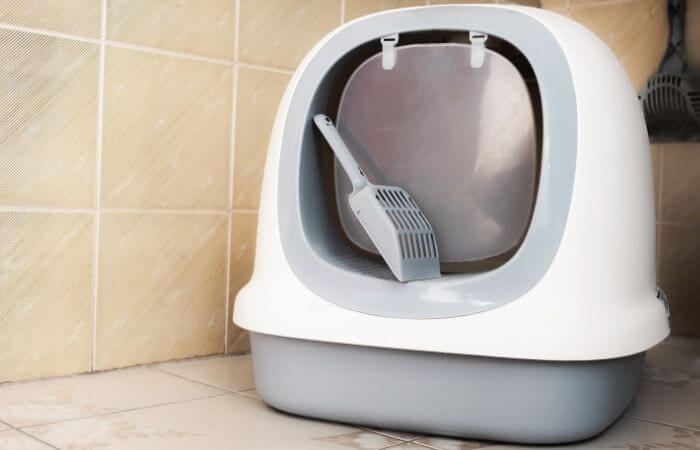
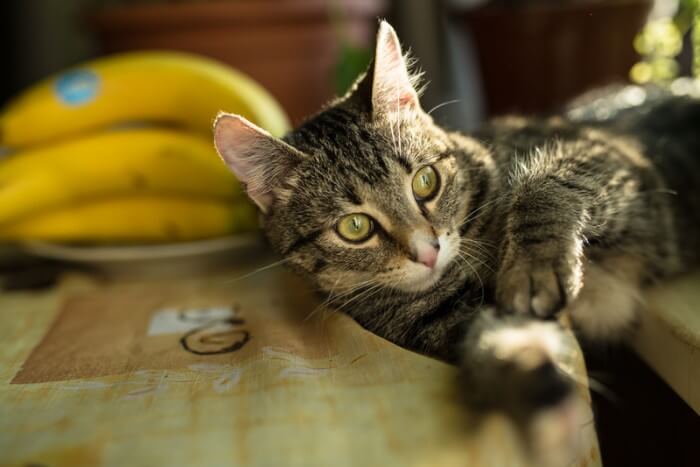
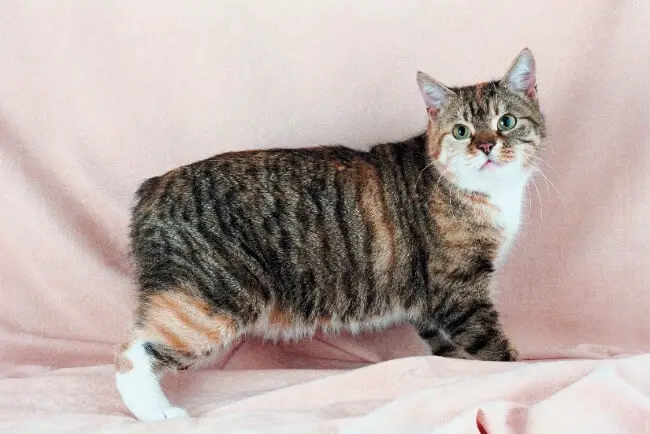
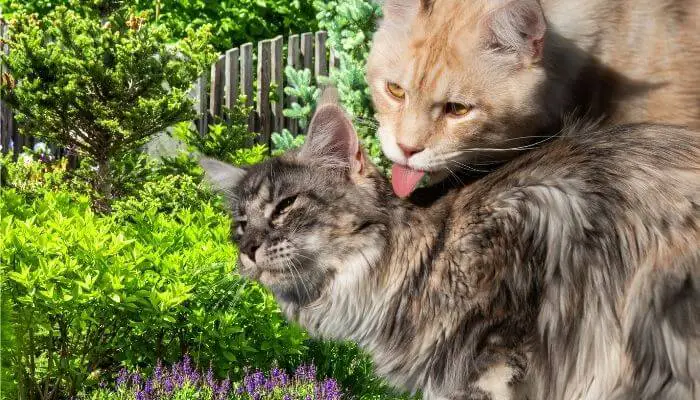

Leave a Comment